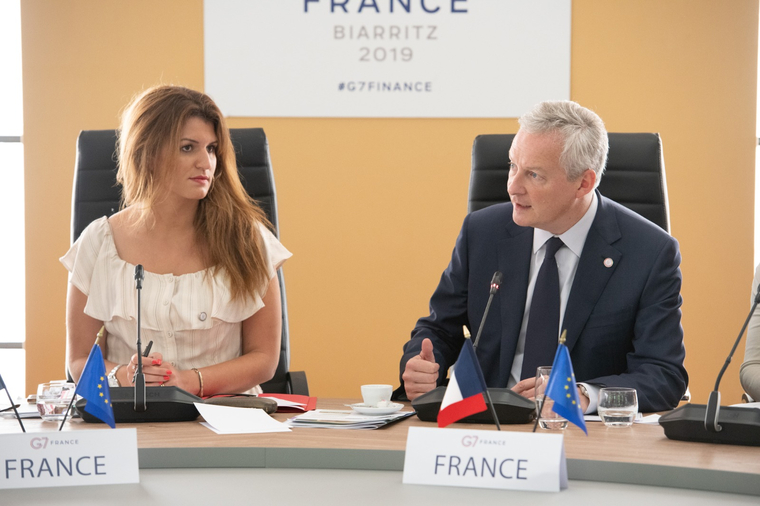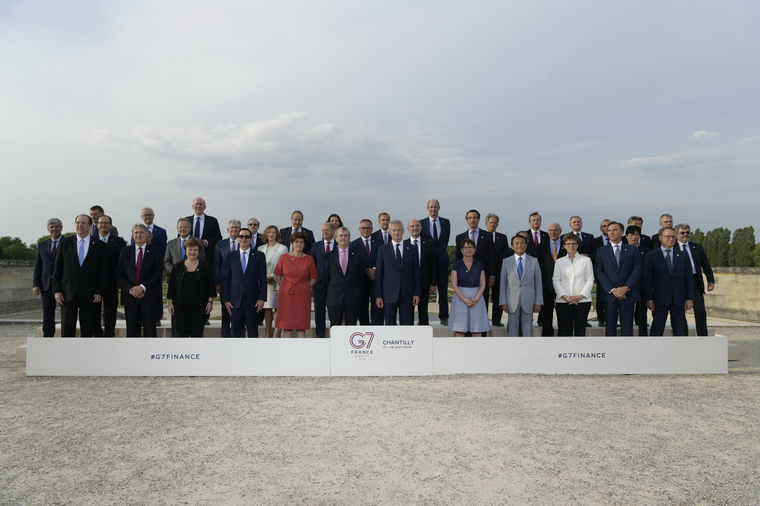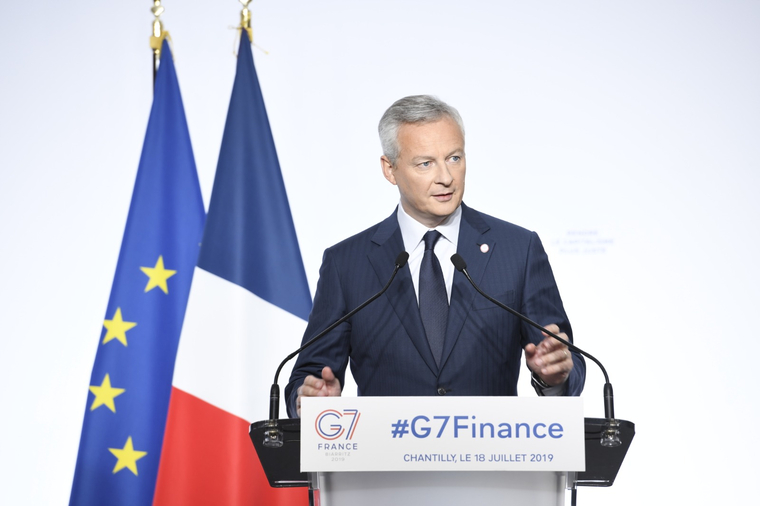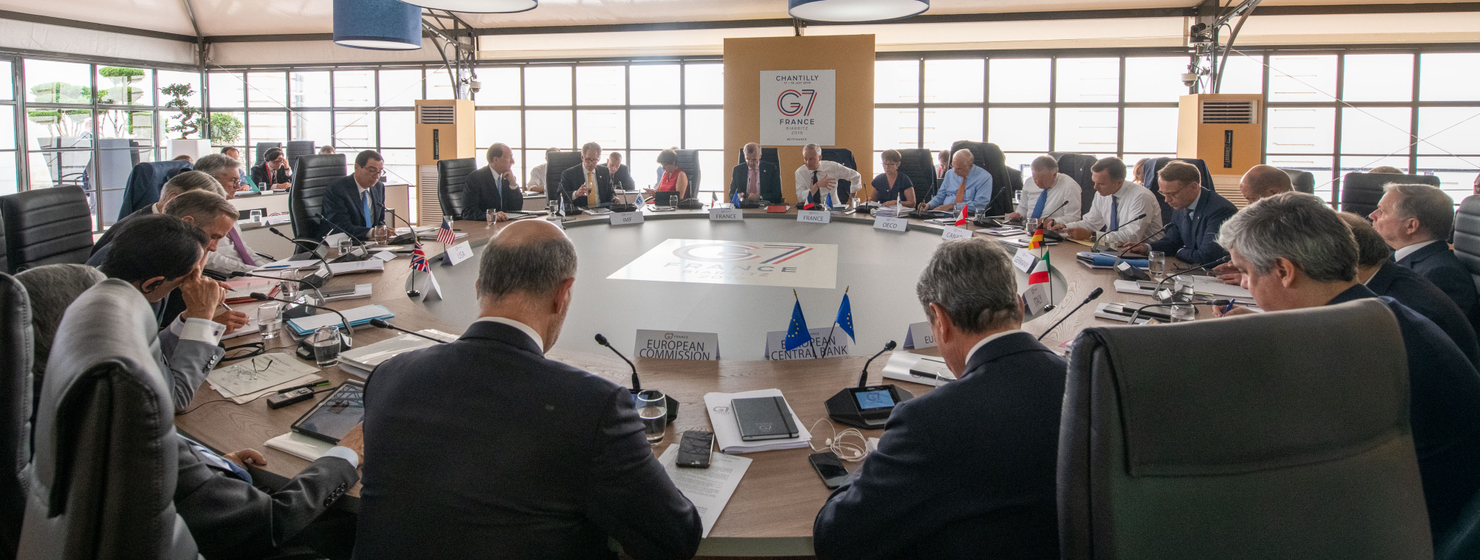The Finance Ministers and Central Bank Governors of the G7 nations met in Chantilly on 17 and 18 July 2019, in the last G7 Ministerial Meeting prior to the Biarritz Summit from 24 to 26 August. The meeting focused on the cross-cutting priority of the French G7 Presidency: making capitalism fairer and more sustainable.

The participants discussed 3 major challenges:
- Addressing the risks to the global economy and the financial system in order to foster strong, sustainable, balanced and inclusive growth;
- Responding to emerging challenges, including as regards taxation, digital technology and green finance;
- Combating inequality, both within advanced economies and between countries.
The meeting highlighted very strong points of convergence on international taxation and the assessment of risks related to the development by the private sector of new payment products such as the Libra.

In the tax field, discussions made it possible to reach an ambitious agreement, in order to establish new territorial tax rules ensuring fair taxation of corporations, including in the digital sector, regardless of physical presence. The Ministers and Governors also agreed to put in place a minimum level of effective taxation of business profits, in order to address aggressive tax planning schemes. The Chantilly G7 Finance Meeting thus generated momentum towards a comprehensive agreement at the OECD on the general architecture of these rules by January 2020.
Concerning new payment methods developed by the private sector (stablecoins), there was strong convergence on underlining the serious concerns raised by these products, both in regulatory and systemic terms, and the major challenges for public policies. In this context, the participants felt it important not to authorize the deployment of these projects so long as these concerns are not addressed by their promoters.
The G7 Finance Meeting also addressed a number of other issues. The lessons learned during the first joint G7 cross-border cyber crisis management exercise were discussed, in order to draw up a road map for strengthening the resilience of the financial system. The participants also reached a common understanding of the issues in terms of fair competition that excessive concentration of data in the hands of the multinational digital giants raises, which is a first step towards potentially adapting tools and regulations.
Useful discussions were also held on green finance and the climate, demonstrating the interest of the G7 in building a taxonomy of sustainable activities, which is an essential step in guiding finance towards green investment. Lastly, on development subjects, the G7 Finance Meeting helped maintain the momentum generated by the Paris Forum on 7 May towards the implementation by all stakeholders of high standards for development finance in the face of debt crisis risks. The financial inclusion of women in Africa through digital technology was also a focus, with Melinda Gates presenting recommendations that will receive funding from France and the United Kingdom.

